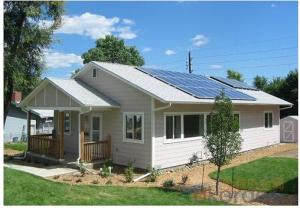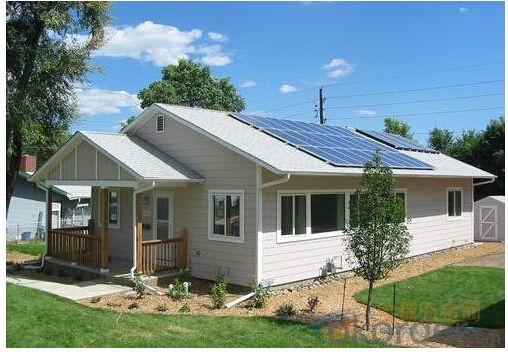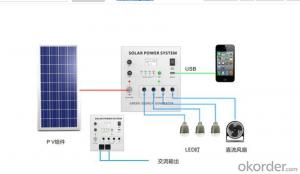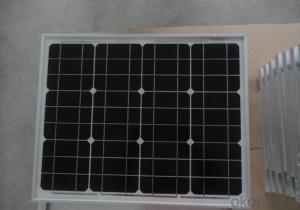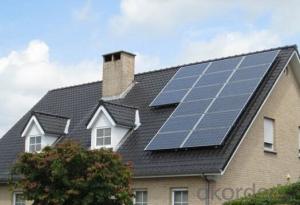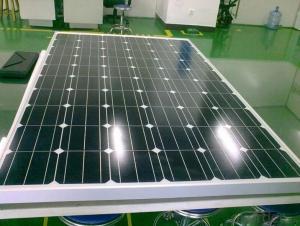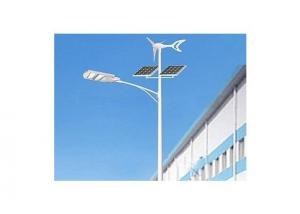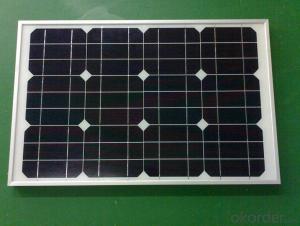Solid Solar Energy Systems - 300W Solar System Made in China
- Loading Port:
- China Main Port
- Payment Terms:
- TT OR LC
- Min Order Qty:
- -
- Supply Capability:
- -
OKorder Service Pledge
Quality Product, Order Online Tracking, Timely Delivery
OKorder Financial Service
Credit Rating, Credit Services, Credit Purchasing
You Might Also Like
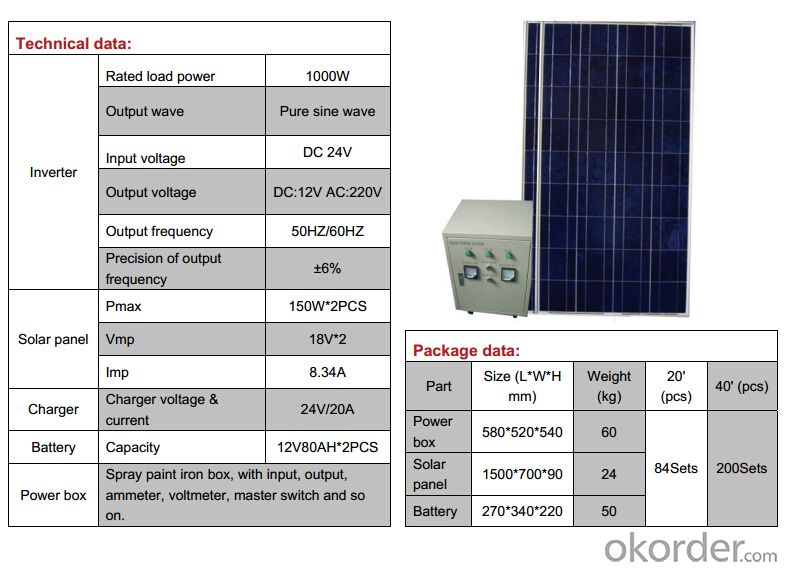
- Q: Are there any noise concerns associated with solar energy systems?
- While solar energy systems are generally quiet, there are potential noise concerns associated with certain components of the system. The most common source of noise in solar energy systems is the inverter, which converts the direct current (DC) electricity generated by the solar panels into alternating current (AC) electricity that can be used in homes or businesses. Inverters can emit a low humming noise, similar to that of a refrigerator or air conditioning unit, but the noise level is typically very low and not considered disruptive. However, advancements in technology have led to the development of quieter inverters that produce minimal noise. Some inverters are designed with noise reduction features such as soundproof enclosures or fans with low noise levels. Additionally, the location of the inverter can play a role in minimizing noise concerns. Placing the inverter in a well-insulated area, away from living spaces, can further reduce any potential noise disturbances. It's worth noting that other components of a solar energy system, such as the mounting structures or wiring, do not produce any significant noise. Solar panels themselves do not generate noise as they rely on sunlight to generate electricity rather than any moving parts. Overall, while there may be some noise concerns associated with certain components of solar energy systems, advancements in technology and proper installation practices have significantly minimized any potential disruptions.
- Q: What is the role of solar energy systems in reducing noise pollution?
- Solar energy systems play a significant role in reducing noise pollution as they operate silently without the need for any mechanical parts or combustion. Unlike traditional energy sources like generators or power plants, solar panels generate electricity through the absorption of sunlight, eliminating noise emissions. This not only provides a quieter and more peaceful environment for nearby communities but also has a positive impact on wildlife, reducing disturbances caused by loud machinery or industrial processes.
- Q: Can solar energy systems be used to power large industrial facilities?
- Yes, solar energy systems can be used to power large industrial facilities. With advancements in technology, solar power systems have become increasingly efficient and cost-effective, making them viable options for industrial-scale energy needs. Many industrial facilities are now adopting solar energy systems to reduce their reliance on traditional fossil fuel-based power sources and to lower their carbon footprint. These systems can be customized to meet the specific energy demands of large-scale industrial operations, providing a sustainable and reliable source of power.
- Q: What is the impact of shading from nearby trees or buildings?
- The impact of shading from nearby trees or buildings can vary depending on the specific situation. In general, shading can provide relief from direct sunlight, reducing heat gain and providing a more comfortable environment. However, excessive shading can limit the amount of natural light entering a space, potentially leading to dark and gloomy interiors. Additionally, shading can affect the growth and health of plants, as they may not receive adequate sunlight for photosynthesis. Proper management of shading is crucial to balance the benefits of shade with the potential drawbacks.
- Q: What are the advantages of using solar energy systems?
- There are several advantages of using solar energy systems. Firstly, solar energy is a renewable and abundant source of power, meaning it will never run out and can be harnessed anywhere in the world. Additionally, using solar energy helps to reduce greenhouse gas emissions and combat climate change, as it produces no harmful pollutants during operation. Solar energy systems also provide energy independence, allowing individuals and communities to generate their own power and reduce reliance on traditional energy sources. Furthermore, solar energy can lead to cost savings in the long run, as it reduces electricity bills and offers potential financial incentives such as tax credits or feed-in tariffs. Lastly, solar energy systems require minimal maintenance and have a long lifespan, making them a reliable and durable option for generating clean energy.
- Q: What is the expected return on investment for a solar energy system?
- The expected return on investment for a solar energy system depends on several factors such as the initial cost of installation, the amount of sunlight available in the area, the efficiency of the system, and the local electricity rates. On average, solar energy systems can provide a return on investment of around 8-10% annually. However, it is important to note that the exact return can vary significantly based on individual circumstances and factors specific to each installation.
- Q: Can solar energy systems be used in powering warehouses or distribution centers?
- Yes, solar energy systems can definitely be used in powering warehouses or distribution centers. In fact, many businesses are increasingly adopting solar energy as a sustainable and cost-effective solution for their energy needs. Warehouses and distribution centers are typically large facilities with ample roof space, making them ideal candidates for solar panel installations. By installing solar panels on the roof or ground of these facilities, the generated solar energy can be used to power various operations within the warehouse or distribution center. This includes lighting systems, climate control, refrigeration units, conveyor belts, and other machinery or equipment. The generated energy can also be stored in batteries for later use during cloudy days or at night. Several advantages make solar energy systems a great fit for warehouses and distribution centers. Firstly, solar power helps reduce reliance on the traditional grid, leading to reduced electricity bills and long-term cost savings. Moreover, as solar energy is a renewable and clean energy source, using it reduces greenhouse gas emissions and contributes to a more sustainable business operation. In addition to the cost and environmental benefits, solar energy systems can also provide businesses with energy independence and resilience. By generating their own power, warehouses and distribution centers are less vulnerable to power outages or fluctuations in the grid, ensuring uninterrupted operations and minimizing downtime. Overall, the use of solar energy systems in powering warehouses and distribution centers presents numerous advantages, including cost savings, sustainability, energy independence, and operational resilience. As a result, more and more businesses are embracing solar energy as a reliable and efficient solution for their energy needs in these types of facilities.
- Q: Can solar energy systems be used for heating and cooling homes?
- Solar energy systems have the potential to be utilized for both heating and cooling homes. The energy from the sun can be captured by solar panels or solar water heaters to generate electricity or heat, which can then be used to power heating and cooling systems within homes. For heating purposes, there are various methods in which solar energy can be employed. Solar thermal systems can be installed to warm water for radiant floor heating or produce steam for heating purposes. Solar air heating systems are another option, as they can warm the air that can be distributed throughout the house using ductwork and fans. Additionally, solar heat pumps can be utilized to transfer heat from the sun into the home. In a similar vein, solar energy can also be effectively utilized for cooling homes. Solar-powered air conditioning systems can be employed, utilizing solar energy to operate the compressors and fans necessary for cooling. These systems are particularly advantageous in regions with hot climates, where sunlight availability aligns with the need for cooling. The use of solar energy systems for both heating and cooling offers numerous benefits. First and foremost, solar energy is a clean and renewable source of energy, which reduces reliance on fossil fuels and minimizes carbon emissions. Furthermore, the use of solar energy systems provides long-term cost savings, as they decrease or eliminate the need for traditional heating and cooling methods that rely on grid electricity or fossil fuels. Additionally, solar energy systems can be easily integrated into existing homes or included in new construction projects, making them a versatile and sustainable option for heating and cooling residential properties.
- Q: Can solar energy systems be used for powering electric bikes?
- Yes, solar energy systems can be used to power electric bikes. Solar panels can be installed on rooftops or other suitable areas to capture sunlight and convert it into electricity. This electricity can then be used to charge the batteries of electric bikes, providing a sustainable and renewable source of power.
- Q: How do solar energy systems impact the reliability of electricity supply?
- The reliability of electricity supply is greatly improved by solar energy systems. These systems harness the energy of the sun to produce electricity that is clean, renewable, and plentiful. This reduces our dependence on traditional fossil fuel-based power generation, which is vulnerable to price fluctuations and supply disruptions. One of the main benefits of solar energy is its distributed nature. Solar panels can be installed on rooftops or in small-scale setups throughout a community, creating a decentralized model of electricity generation. This approach helps mitigate the risks of large-scale power outages caused by natural disasters, equipment failures, or grid disturbances. In the event of a local blackout or grid failure, solar energy systems can continue to provide electricity to homes, businesses, and critical infrastructure, ensuring a more dependable power supply. Moreover, solar power systems can enhance grid stability and reliability by reducing peak demand on the electricity grid. Solar energy production typically aligns with peak demand periods, such as hot summer afternoons when air conditioning usage is high. By generating electricity during these peak periods, solar systems alleviate strain on the grid, decreasing the likelihood of blackouts or voltage fluctuations. Additionally, solar energy systems can be combined with energy storage technologies, like batteries, to offer backup power during periods of low sunlight or grid outages. These energy storage solutions enable surplus solar energy to be stored and utilized when necessary, further bolstering the reliability and resilience of electricity supply. In conclusion, solar energy systems have a positive impact on the reliability of electricity supply by providing a decentralized and distributed generation model, reducing strain on the grid during peak demand periods, and offering backup power through energy storage solutions. By diversifying our energy sources and embracing solar power, we can create a more resilient and dependable electricity supply system.
Send your message to us
Solid Solar Energy Systems - 300W Solar System Made in China
- Loading Port:
- China Main Port
- Payment Terms:
- TT OR LC
- Min Order Qty:
- -
- Supply Capability:
- -
OKorder Service Pledge
Quality Product, Order Online Tracking, Timely Delivery
OKorder Financial Service
Credit Rating, Credit Services, Credit Purchasing
Similar products
Hot products
Hot Searches
Related keywords
